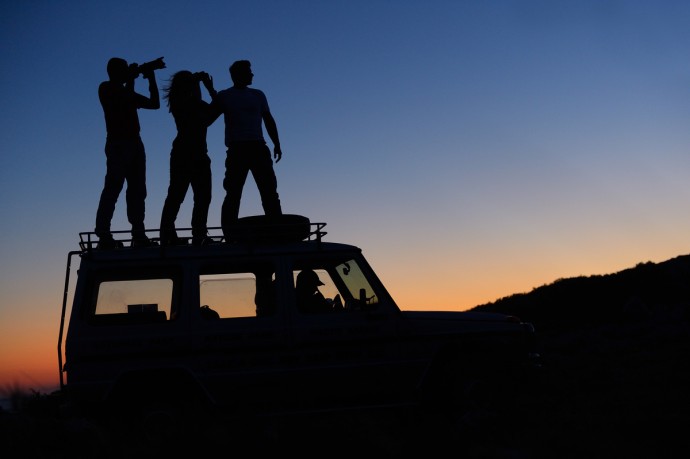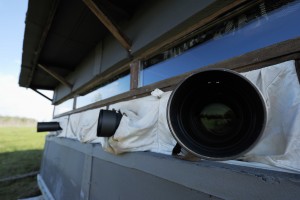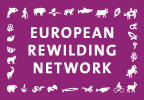This November, the eighth web-based seminar of the European Rewilding Network took place. Members of the network shared valuable experiences on how to increase the tourism value of wild nature and wildlife. The seminar addressed the benefits that can arise from nature-based tourism for nature, wildlife as well as for local communities. One of the highlights was to learn how local people benefit from wildlife photography in the Iberian Peninsula.

Within the European Rewilding Network (ERN), members actively exchange ideas and lessons learned to inspire each other in their rewilding related work and by doing so, bringing ‘rewilding’ forward as a conservation approach. With seven previous online events, webinars are considered a great tool to achieve this aim. This time, attendants from twelve countries throughout Europe working on rewilding projects and activities participated in the event.
In his role as Wildlife Tourism Manager of Rewilding Europe, Simon Collier was the first speaker. With his years of experience, Simon helps to identify and develop nature/wildlife tourism opportunities in all rewilding areas. He guided the participants through what it takes to develop a wildlife tourism business and explained important elements to take into account. Learning from other nature/wildlife tourism businesses that are already successful is an effective way for those who want to develop or improve their own business. For instance in the case of developing a bear-watching operation in Croatia, Simon and colleagues recently visited and learned from a highly successful wildlife photography business in Finland. One of the elements here was to find a balance between observing and at the same time not disturbing the behaviour of wild animals. Another example, the set-up of a tented camp in Faia Brava reserve in Portugal, highlighted how to make sure that accommodation for nature enthusiasts fits well in the scenery of a landscape, while keeping it simple and flexible.

The next speaker was Carles Santana from the Spanish company Photo Logistics – a member of ERN – presenting his experiences on cooperation with local partners to undertake their wildlife photography activities in a novel way. Carles developed a revenue system in which they collaborate with landowners building wildlife hides on their lands, of which the owner is receiving a part of the income. After several years of operation, Carles explained that the local interest in nature increased because economic benefits from the tourism activities to the local society became more obvious. Besides landowners, also B&B’s, restaurants and shops are benefitting from the increase in tourism activity. With close to 30 landowners being involved so far, their interest in wildlife has become apparent. In addition, local people are becoming more proud of what their region has to offer. The revenue system turned out to be a great way forward for nature conservation and a successful example of an enterprise that actively contributes to rewilding.
Overall, the webinar provided insights and suggestions to the participants in what it takes to make a wider audience aware of the value of wildlife and what it can bring to a region, and how people can benefit. Collaboration with local stakeholders and finding a healthy balance between people and wildlife are key points to take into account. With this in mind, there is a great potential for wildlife related enterprises in Europe. For practical and technical information on how to build a successful wildlife-watching hide, an updated guide published by Rewilding Europe can be found here.
 Recently, ERN has been enlarged with several new member sites, and now counts 42 members located in 18 different countries all over Europe. Besides Rewilding Europe’s main rewilding areas, the network spreads over an impressive 1 million hectares where inspiring rewilding activities are taking place.
Recently, ERN has been enlarged with several new member sites, and now counts 42 members located in 18 different countries all over Europe. Besides Rewilding Europe’s main rewilding areas, the network spreads over an impressive 1 million hectares where inspiring rewilding activities are taking place.
Rewilding Europe warmly welcomes new members to the network, as we believe that sharing and discussing rewilding experiences will be useful for all of us working to make Europe a wilder place. Please feel welcome to have a look at how your rewilding initiative could become a part of Rewilding Europe Network at www.rewildingeurope.com/rewilding-network/.
